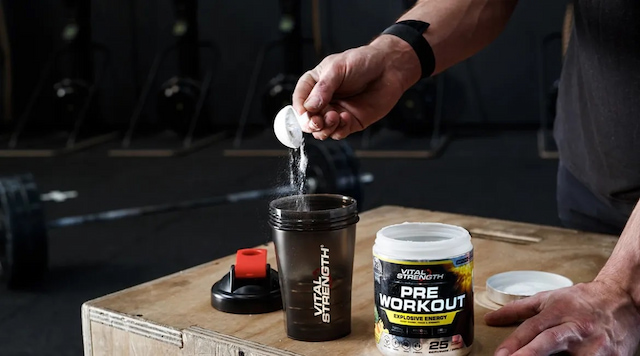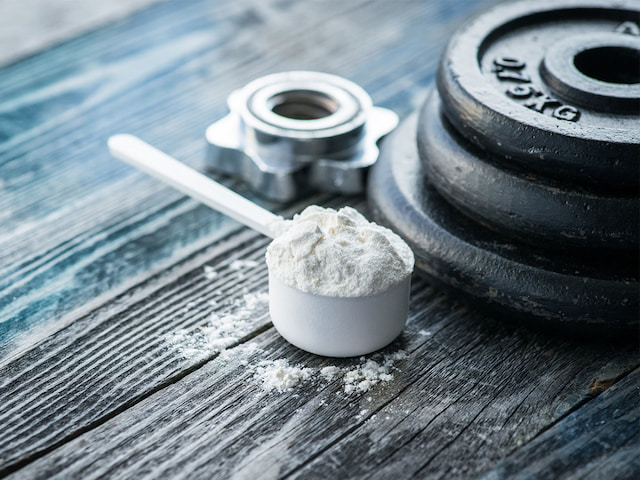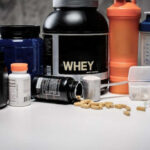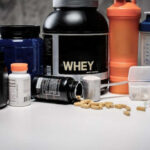The fitness world is booming, and with it comes the ever-growing popularity of workout supplements. From protein powders to pre-workout concoctions, these targeted formulas promise to enhance your training, accelerate results, and fuel your fitness goals. But with a dizzying array of options available, navigating the supplement aisle can feel overwhelming. Before diving headfirst into the world of powders and pills, understanding the different types of supplements for workouts and their potential benefits is crucial.
Essential Pre-Workout and Hydration Support

The use of essential workout supplements has seen a significant rise in popularity among fitness enthusiasts. These workout supplements for sale, ranging from protein powders to pre-workout formulas and recovery aids, are increasingly being adopted to enhance performance, build muscle, and improve overall fitness outcomes. The allure of achieving quicker results and optimising workout efficiency has driven many to explore these products.
Pre-Workout Powders
Pre-workout powders are formulated to enhance exercise performance by providing increased energy, focus, and improved blood flow. These supplements typically contain a blend of ingredients that work together to prepare the body for intense physical activity.
Pre-workout powders can significantly enhance workout performance by increasing energy and mental focus, allowing athletes to train harder and longer. Improved blood flow, facilitated by ingredients like nitric oxide boosters, ensures better delivery of oxygen and nutrients to muscles, enhancing endurance and recovery. By incorporating pre-workout powders into their routine, fitness enthusiasts can maximise the effectiveness of their training sessions and achieve their fitness goals more efficiently.
Electrolytes
Electrolytes play a key role in maintaining hydration, muscle function, and nerve transmission. They are minerals, including sodium, potassium, calcium, and magnesium, that dissolve in bodily fluids and carry an electric charge. This electric charge is essential for various physiological processes.
Hydration
Electrolytes help regulate fluid balance in the body by controlling the water movement in and out of cells. They ensure that the body’s hydration levels are optimal, which is particularly important during physical activity. Proper hydration helps maintain endurance and performance, preventing dehydration, which can lead to fatigue and decreased exercise capacity.
Muscle Function and Nerve Transmission
Electrolytes are vital for muscle contraction and relaxation. For instance, calcium triggers muscle contraction, while magnesium helps muscles relax. Potassium and sodium work together to generate electrical impulses necessary for muscle contractions and nerve signals. A balance of these electrolytes ensures smooth muscle function and effective nerve transmission, preventing cramps and spasms during intense workouts.
Post-Workout Recovery
After a challenging workout, your body enters a crucial recovery phase. This is when muscles repair and rebuild, becoming stronger and more resilient.
Protein Powders
Protein is the cornerstone of muscle tissue. After exercise, your muscles require protein for repair and growth. Protein powders offer a concentrated and convenient way to meet your daily protein needs, especially if you struggle to consume enough protein through diet alone.
Different Protein Sources:
- Whey Protein: This rapidly absorbed protein source is ideal for post-workout consumption, as it quickly delivers essential amino acids to your muscles for repair and growth.
- Casein Protein: A slower-digesting protein, casein is a good option before bed or between meals as it provides a sustained release of amino acids over time.
- Plant-Based Protein: For vegetarians and vegans, plant-based protein powders derived from sources like pea protein or soy protein offer a complete amino acid profile to support muscle recovery.
Branched-chain amino acids (BCAAs) are a group of three essential amino acids (leucine, isoleucine, and valine) that play a crucial role in muscle protein synthesis and energy production during exercise. Supplementing with BCAAs after your workout may offer potential benefits such as:
- Enhanced Muscle Recovery: BCAAs may help reduce muscle breakdown and promote muscle repair after exercise.
- Reduced Muscle Soreness: Studies suggest BCAAs can help decrease muscle soreness after strenuous exercise, allowing you to recover faster and return to training sooner.
Performance Enhancers

As you progress on your fitness journey and push your limits, you might explore workout supplements online and in-store that can enhance your performance and help you reach new heights.
Creatine Monohydrate
Creatine is a naturally occurring compound in muscle cells that plays a role in energy production. Supplementing with creatine can increase your body’s creatine stores, leading to improved muscle strength, particularly during high-intensity activities like weightlifting. This allows you to lift heavier weights and experience greater gains in muscle mass over time. Creatine fuels short bursts of explosive energy. This translates to better performance during exercises that require power, allowing you to perform more reps, experience greater power output, and shorten your rest periods between sets.
Beta-Alanine
Beta-alanine is a non-essential amino acid that your body converts into carnosine, a molecule stored in your muscles. During intense exercise, lactic acid accumulates in your muscles, contributing to that burning sensation and hindering performance. Beta-alanine helps increase carnosine levels, which acts as a buffer, delaying the buildup of lactic acid and allowing you to train harder for longer. This can be particularly beneficial for interval training or high-intensity cardio sessions. Beta-alanine supplementation can enhance your endurance, allowing you to perform more repetitions, extend your training sessions, and improve your overall fitness level.
Informed Choices for Your Fitness Journey
Achieving lasting fitness results requires a comprehensive approach. Focus on a balanced and healthy diet, a consistent exercise routine that aligns with tips to reach your workout goals, and adequate rest. Supplements can play a supporting role, but they should never replace a well-rounded strategy for overall well-being. Next time you browse the supplement aisle, approach it with knowledge and make informed decisions. With dedication to a healthy lifestyle, smart choices, and a well-designed workout plan, you’ll be well on your way to reaching your fitness goals!





















